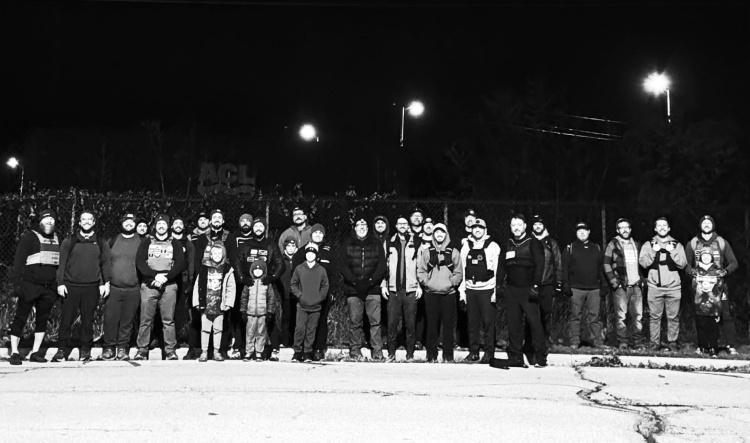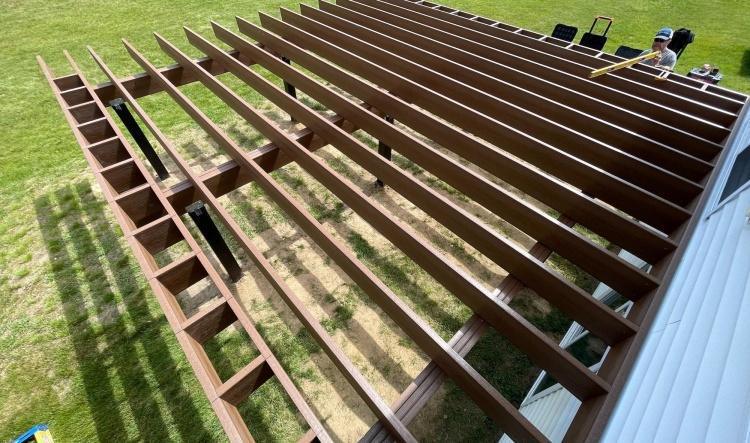
Lapeer Men’s Club — What We’re About
Lapeer Men's Club... One hour. One walk. One step closer to not carrying everything alone. Lapeer Men’s Club — What We’re About

Lapeer Men's Club... One hour. One walk. One step closer to not carrying everything alone. Lapeer Men’s Club — What We’re About

A clear look at why chambers exist and what the Lapeer Area Chamber does—events like Lapeer Days, the Spring Expo, Food Truck Fest, networking, and business support. What the Lapeer Chamber Really Does

An in-depth look at the Lapeer Optimist Club—its history, major fundraisers, and how it supports Lapeer County youth through scholarships, events, and local giving. Lapeer Optimist Club: Youth in Focus
Downtown Lapeer, Measured in Moments
Seven Ponds in winter: the easiest “get outside” plan for that in-between week
A local look at the Lapeer State Game Area—its roots before state ownership, how it was assembled, and how people use it today for hunting, wildlife, and quiet walks in Lapeer. Lapeer State Game Area: the “big woods” hiding in plain sight

Discover winter things to do outdoors in Lapeer, from fat tire biking at Oakdale Trails to sledding, free ice skating at the city rink, and ice fishing on Lake Nepessing. Winter Outside: Fat Bikes, Sleds, Skates & Snow Days Around Lapeer

Snow Season in Lapeer: Roads, Plows & Driveways
From One-Room Schoolhouses to the Lightning: A Friendly History of Lapeer Schools
5th Annual Beaver Dash Bash: Lapeer’s favorite fall trail party

1. Wood Composite Decking Lacks Strength

After a rollercoaster few years for the hospitality industry, catering is not only back—it's booming.

Pets are a part of our family and are frequently included in our vacation plans. If you are traveling with your pet this summer, it is important to plan ahead, allow extra time for travel, and be prepared for an emergency.

If you’ve ever wondered what it looks like when love, purpose, and passion collide in one dynamic family, look no further than Chris and Penny Turner of Potter’s Lake. Their journey is a storybook that starts with meeting in high school at Lapeer West, separated by life’s winding roads, only to reconnect decades later through a Facebook photo of a granddaughter. That one spark ignited a flame, and in 2022, they sealed their story in a lakeside wedding at home, surrounded by the people they love most. From Arizona’s red rocks to the blue waters of Barbados, their adventures together mirror the depth and excitement of their shared purpose back home.
The 1881 wildfire scorched every township in Lapeer County, leaving devastation but forging a legacy of resilience. 1881: The Fire That Touched Every Township – Part 1: A County in Flames
1881: The Fire That Touched Every Township – Part 2: North Branch’s Trial by Fire
Goodland Township lost its hotel, barns, and grain to the 1881 fire, but the community’s resilience helped it rebuild. 1881: The Fire That Touched Every Township – Part 3: Goodland’s Hotel and Harvest Lost
Burlington and Arcadia faced the 1881 fire in different ways, but both relied on unity and resilience to survive and rebuild. 1881: The Fire That Touched Every Township – Part 4: Burlington and Arcadia — Battling Fire on Two Fronts
The 1881 fire left devastation across Lapeer County but also ignited a lasting spirit of unity and resilience. 1881: The Fire That Touched Every Township – Part 5: A County United in the Ashes
Discover how Oakdale began in 1893 with big promises of care and reform, shaping Lapeer’s history as Michigan’s home for the “feebleminded.” In the summer of 1893, Michigan lawmakers gathered in Lansing to debate a growing social dilemma. Across the state, poorhouses were overcrowded, jails were taking in people who hadn’t committed crimes, and families were overwhelmed with the care of loved ones who suffered from epilepsy or intellectual disabilities. The prevailing belief of the era was that these individuals could be “trained” to live useful lives, but if they could not, they should be cared for—and contained—in a special setting.
Learn how Oakdale grew into a self-contained city with farms, schools, and workshops, housing over 4,600 residents at its peak. By the turn of the 20th century, the Michigan Home for the Feeble-Minded and Epileptic was no longer just a small collection of cottages on 160 acres. In less than a decade, it had begun to transform into something far larger—an entire community within itself. What started with fewer than 150 residents would soon swell into the thousands. The institution, later known as Oakdale, would become a miniature city, complete with its own farms, school system, workshops, recreation programs, and a workforce that rivaled many small towns.
Explore Oakdale’s role in Michigan’s eugenics era, from forced sterilizations to regimented treatment policies that shaped thousands of lives. As Oakdale grew from a modest cluster of cottages into Michigan’s largest institution for people with epilepsy and developmental disabilities, it also became a microcosm of the era’s most controversial medical and social policies.
Step inside Oakdale’s walls to see the daily routines, work, joys, and struggles of residents and staff who lived and served there for decades. Beneath Oakdale’s sprawling campus of dormitories, workshops, and farmland were the daily rhythms of thousands of lives. To the outside world, it was an orderly institution, a place where “inmates” were cared for and trained. But for the people who lived and worked there, Oakdale was its own complex community, filled with routines, relationships, small joys, and quiet sorrows.
Discover how changing attitudes and policies led to Oakdale’s decline, closure in 1991, and the relocation of its last residents. By the 1970s, the towering presence of Oakdale—once a symbol of stability and progress—began to feel outdated, even oppressive. The world outside its gates was changing rapidly. Attitudes toward mental health, disability, and civil rights were shifting. What had once been celebrated as a model institution was now being questioned for its size, its methods, and the very philosophy that had built it.